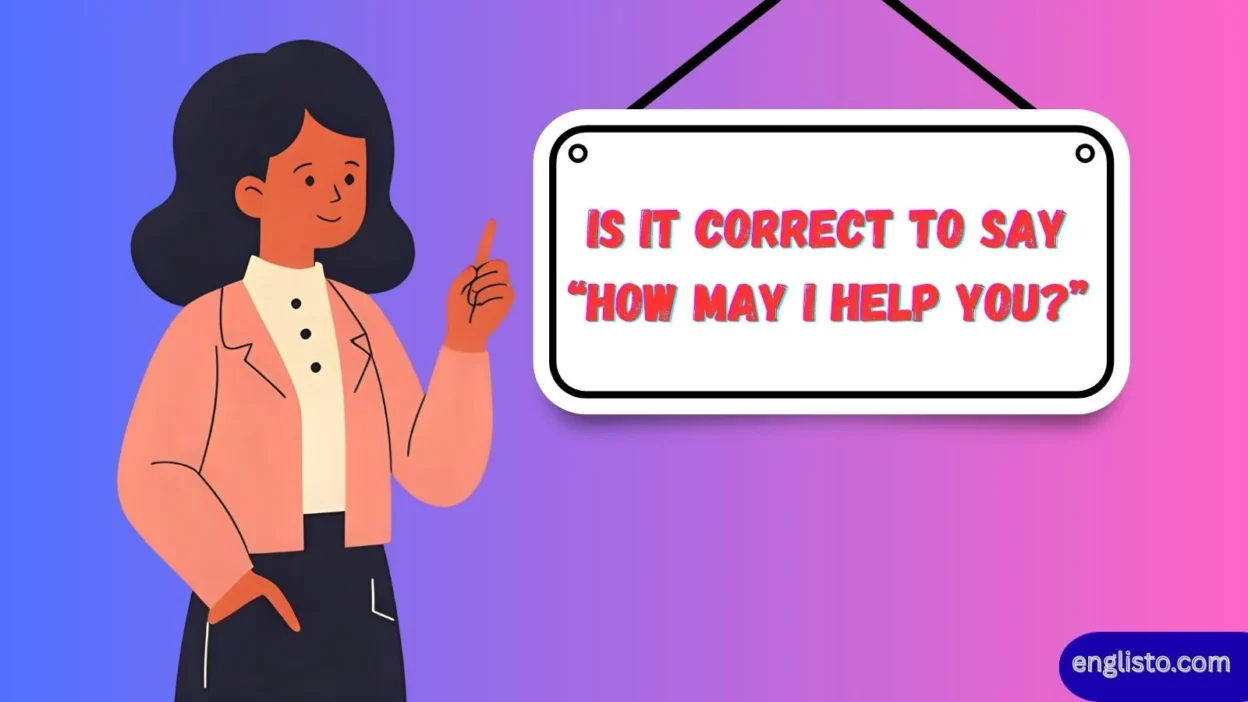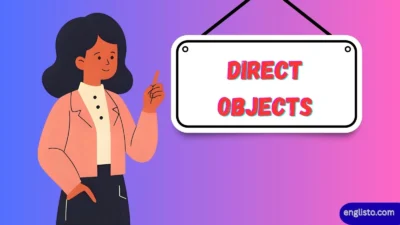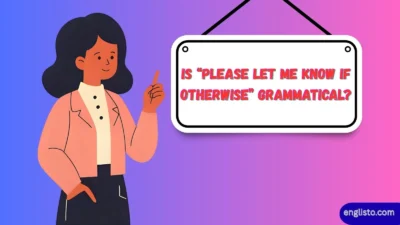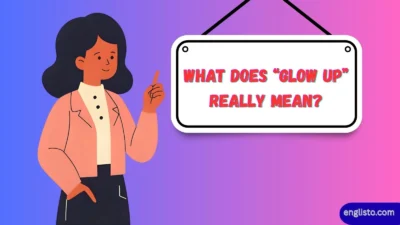When you walk into a store, call customer service, or send an email to a support team, chances are you’ve heard the phrase: “How may I help you?” It’s polite, professional, and has been a staple in service interactions for decades. But many people wonder: Is this phrase grammatically correct? And more importantly, is it the best option to use in modern communication? Is It Correct to Say “How May I Help You?”.
This guide takes a deep dive into the grammar, tone, and context of “How may I help you?”—exploring when and why it’s appropriate, what alternatives exist, and how it compares with similar expressions.
Why People Ask if It’s Correct
At first glance, “How may I help you?” sounds a little old-fashioned compared to casual phrases like “How can I help you?” That’s why learners of English, customer service professionals, and even native speakers sometimes pause and question whether it’s still proper English.
The short answer: Yes, it’s correct.
The phrase is grammatically sound and widely accepted. But the nuance between may and can makes a difference in tone and perception. Let’s break it down.
Grammar Behind “How May I Help You?”
The Role of “May”
- May traditionally expresses permission or politeness.
- Example: May I open the window? (asking permission)
- When you say, “How may I help you?”, you’re really asking: “In what way am I permitted (or allowed) to help you?”
The Role of “Can”
- Can expresses ability or possibility.
- Example: Can I open the window? (asking about ability, but often used in daily speech for permission).
- Saying “How can I help you?” shifts the tone to “In what way am I able to help you?”
Both are correct, but may feels more formal and polite, while can feels more casual and friendly.
Comparing “How May I Help You?” and “How Can I Help You?”
| Phrase | Formality | Common in | Tone | Example Situation |
| How may I help you? | Formal, professional | Customer service, hotels, banks | Polite, slightly traditional | A receptionist at a law firm greeting a client |
| How can I help you? | Neutral, friendly | Daily conversations, modern workplaces | Warm, approachable | A coworker offering help with a project |
Tip: In a high-end or luxury service environment, “How may I help you?” often feels more fitting. In casual or everyday settings, “How can I help you?” sounds more natural.
When to Use “How May I Help You?”
You’ll hear this phrase most often in:
- Customer service interactions: reception desks, call centers, online chat support
- Formal professional settings: law offices, medical practices, financial institutions
- Hospitality industry: hotels, restaurants, airlines
In these contexts, the phrase signals professionalism, courtesy, and respect.
Example Dialogue:
- Hotel receptionist: “Good evening, welcome to The Grandview. How may I help you?”
- Guest: “I’d like to check in, please.”
Why “May” Sounds More Polite
The reason companies prefer “may” is tied to tone psychology.
- “May” suggests permission and deference, making customers feel respected.
- “Can” suggests ability, which feels less formal and sometimes too casual in high-touch industries.
Think of it this way:
- “How may I help you?” = I’m here to serve you, with courtesy.
- “How can I help you?” = I’m here to assist you, let’s get this done.
Both are helpful, but the subtle difference impacts customer perception.
Alternatives to “How May I Help You?”
Sometimes variety is the key to sounding natural and warm. Here are alternatives depending on tone and context:
| Alternative Phrase | Context | Tone |
| What can I do for you today? | Friendly, casual service | Approachable |
| How can I assist you? | Professional, formal emails | Polite |
| Is there something I can help you with? | Neutral, conversational | Helpful |
| What seems to be the problem? | Technical support | Direct |
| What brings you in today? | Healthcare, personal services | Warm, empathetic |
Real-Life Usage Examples
At a Retail Store
- Customer: “Hi, I’m looking for this jacket in a different size.”
- Associate: “Of course! How may I help you find it?”
On a Customer Service Call
- Agent: “Thank you for calling ABC Bank. How may I help you today?”
- Customer: “I’d like to reset my online banking password.”
In Daily Conversation
- Friend: “I’ve been struggling with my essay.”
- You: “I hear you. How can I help you with it?”
Notice how context changes which version sounds best.
Synonyms and Variations
To avoid sounding robotic, here’s a list of useful alternatives with slightly different flavors:
- Assist: How may I assist you today?
- Support: How can I support you right now?
- Serve: How may I serve you this evening?
- Guide: Would you like me to guide you through the process?
Common Mistakes to Avoid
- Mixing “can” and “may” incorrectly
- Wrong: “How may can I help you?”
- Right: “How may I help you?”
- Wrong: “How may can I help you?”
- Overusing it in casual conversation
- Saying “How may I help you?” to a close friend may sound stiff.
- Saying “How may I help you?” to a close friend may sound stiff.
- Sounding insincere
- If you say it without genuine willingness, customers pick up on the lack of warmth.
- If you say it without genuine willingness, customers pick up on the lack of warmth.
Idioms and Expressions with “Help”
Adding variety can make your communication more engaging:
- Lend a hand: Can I lend you a hand with that?
- Give you a hand: Do you need me to give you a hand?
- Be of service: I’m glad I could be of service.
- Pitch in: Everyone pitched in to help finish on time.
Cultural Notes
- In British English, “How can I help you?” is more common in modern service roles.
- In American English, both are widely used, though “How may I help you?” carries a formal edge.
- In some Asian countries, direct translations of “How may I help you?” are standard in customer service, because they emphasize respect.
Quick Grammar Refresher: “Can” vs. “May”
| Word | Primary Use | Example | Tone |
| Can | Ability, possibility | Can you carry this box? | Neutral |
| May | Permission, politeness | May I enter the room? | Formal |
Over time, the distinction has blurred in everyday speech, but in professional etiquette, the difference still matters.
Final Thoughts
So, is it correct to say “How may I help you?” Absolutely. It’s grammatically proper, polite, and still very much in use—especially in professional and customer service settings. However, whether you choose “may” or “can” depends on the tone you want to set.
- For formal, respectful service, stick with “How may I help you?”
- For casual, approachable interactions, “How can I help you?” often feels more natural.
At the end of the day, what matters most isn’t the grammar—it’s the genuine willingness to assist. When your tone matches your words, customers and colleagues will feel valued, respected, and supported.



